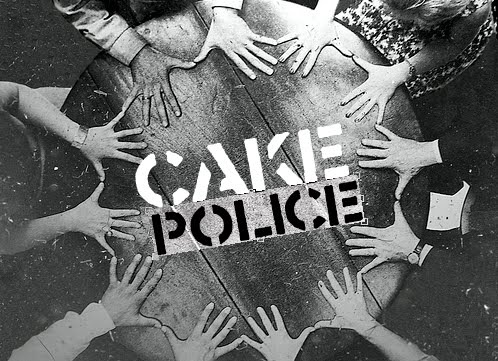It is not enough to remain faithful to the communist hypothesis: one has to locate antagonisms within historical reality which make it a practical urgency. The only true question today is: does global capitalism contain antagonisms strong enough to prevent its indefinite reproduction? Four possible antagonisms present themselves: the looming threat of ecological catastrophe; the inappropriateness of private property for so-called intellectual property; the socio-ethical implications of new techno-scientific developments, especially in biogenetics; and last, but not least, new forms of social apartheid—new walls and slums. We should note that there is a qualitative difference between the last feature, the gap that separates the excluded from the included, and the other three, which designate the domains of what Hardt and Negri call ‘commons’—the shared substance of our social being, whose privatization is a violent act which should be resisted by force, if necessary.
First, there are the commons of culture, the immediately socialized forms of cognitive capital: primarily language, our means of communication and education, but also shared infrastructure such as public transport, electricity, post, etc. If Bill Gates were allowed a monopoly, we would have reached the absurd situation in which a private individual would have owned the software tissue of our basic network of communication. Second, there are the commons of external nature, threatened by pollution and exploitation—from oil to forests and the natural habitat itself—and, third, the commons of internal nature, the biogenetic inheritance of humanity. What all of these struggles share is an awareness of the destructive potential—up to the self-annihilation of humanity itself—in allowing the capitalist logic of enclosing these commons a free run. It is this reference to ‘commons’ which allows the resuscitation of the notion of communism: it enables us to see their progressive enclosure as a process of proletarianization of those who are thereby excluded from their own substance; a process that also points towards exploitation. The task today is to renew the political economy of exploitation—for instance, that of anonymous ‘knowledge workers’ by their companies.
It is, however, only the fourth antagonism, the reference to the excluded, that justifies the term communism. There is nothing more private than a state community which perceives the excluded as a threat and worries how to keep them at a proper distance. In other words, in the series of the four antagonisms, the one between the included and the excluded is the crucial one: without it, all the others lose their subversive edge. Ecology turns into a problem of sustainable development, intellectual property into a complex legal challenge, biogenetics into an ethical issue. One can sincerely fight for the environment, defend a broader notion of intellectual property, oppose the copyrighting of genes, without confronting the antagonism between the included and the excluded. Even more, one can formulate some of these struggles in terms of the included threatened by the polluting excluded. In this way, we get no true universality, only ‘private’ concerns in the Kantian sense. Corporations such as Whole Foods and Starbucks continue to enjoy favour among liberals even though they both engage in anti-union activities; the trick is that they sell products with a progressive spin: coffee made with beans bought at ‘fair-trade’ prices, expensive hybrid vehicles, etc. In short, without the antagonism between the included and the excluded, we may find ourselves in a world in which Bill Gates is the greatest humanitarian, fighting poverty and disease, and Rupert Murdoch the greatest environmentalist, mobilizing hundreds of millions through his media empire.
What one should add here, moving beyond Kant, is that there are social groups which, on account of their lack of a determinate place in the ‘private’ order of social hierarchy, stand directly for universality: they are what Jacques Rancière calls the ‘part of no part’ of the social body. All truly emancipatory politics is generated by the short-circuit between the universality of the public use of reason and the universality of the ‘part of no part’. This was already the communist dream of the young Marx—to bring together the universality of philosophy with the universality of the proletariat. From Ancient Greece, we have a name for the intrusion of the excluded into the socio-political space: democracy.
The predominant liberal notion of democracy also deals with those excluded, but in a radically different mode: it focuses on their inclusion, as minority voices. All positions should be heard, all interests taken into account, the human rights of everyone guaranteed, all ways of life, cultures and practices respected, and so on. The obsession of this democracy is the protection of all kinds of minorities: cultural, religious, sexual, etc. The formula of democracy here consists of patient negotiation and compromise. What gets lost in this is the position of universality embodied in the excluded. The new emancipatory politics will no longer be the act of a particular social agent, but an explosive combination of different agents. What unites us is that, in contrast to the classic image of proletarians who have ‘nothing to lose but their chains’, we are in danger of losing everything. The threat is that we will be reduced to an abstract, empty Cartesian subject dispossessed of all our symbolic content, with our genetic base manipulated, vegetating in an unliveable environment. This triple threat makes us all proletarians, reduced to ‘substanceless subjectivity’, as Marx put it in the Grundrisse. The figure of the ‘part of no part’ confronts us with the truth of our own position; and the ethico-political challenge is to recognize ourselves in this figure. In a way, we are all excluded, from nature as well as from our symbolic substance. Today, we are all potentially homo sacer, and the only way to avoid actually becoming so is to act preventively.

No comments:
Post a Comment